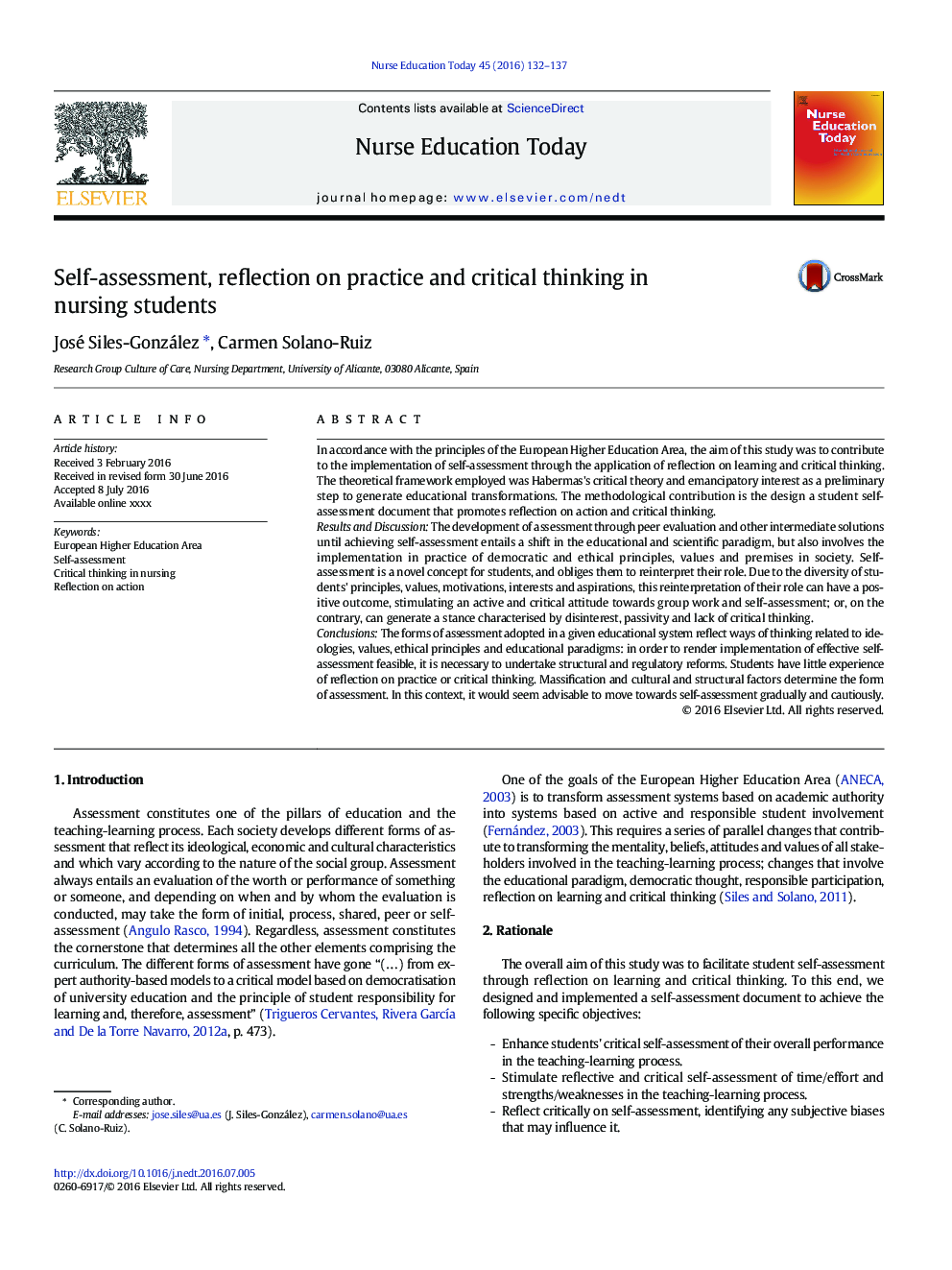| کد مقاله | کد نشریه | سال انتشار | مقاله انگلیسی | نسخه تمام متن |
|---|---|---|---|---|
| 367806 | 621543 | 2016 | 6 صفحه PDF | دانلود رایگان |
• Self-assessment involves the exchange of educational and scientific paradigm.
• Judgments about learning facilitate critical thinking of students.
• The “student stowaway” hinders the effectiveness of self-assessment in groups.
• The self-reflection facilitates the processes of metacognition.
• The students believe they have invested the time and effort required.
In accordance with the principles of the European Higher Education Area, the aim of this study was to contribute to the implementation of self-assessment through the application of reflection on learning and critical thinking. The theoretical framework employed was Habermas's critical theory and emancipatory interest as a preliminary step to generate educational transformations. The methodological contribution is the design a student self-assessment document that promotes reflection on action and critical thinking.Results and DiscussionThe development of assessment through peer evaluation and other intermediate solutions until achieving self-assessment entails a shift in the educational and scientific paradigm, but also involves the implementation in practice of democratic and ethical principles, values and premises in society. Self-assessment is a novel concept for students, and obliges them to reinterpret their role. Due to the diversity of students' principles, values, motivations, interests and aspirations, this reinterpretation of their role can have a positive outcome, stimulating an active and critical attitude towards group work and self-assessment; or, on the contrary, can generate a stance characterised by disinterest, passivity and lack of critical thinking.ConclusionsThe forms of assessment adopted in a given educational system reflect ways of thinking related to ideologies, values, ethical principles and educational paradigms: in order to render implementation of effective self-assessment feasible, it is necessary to undertake structural and regulatory reforms. Students have little experience of reflection on practice or critical thinking. Massification and cultural and structural factors determine the form of assessment. In this context, it would seem advisable to move towards self-assessment gradually and cautiously.
Journal: Nurse Education Today - Volume 45, October 2016, Pages 132–137
